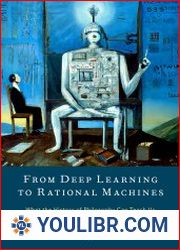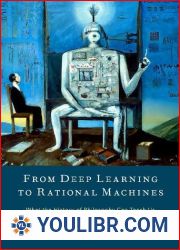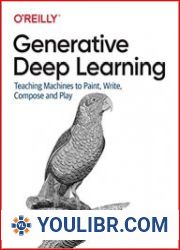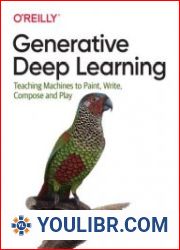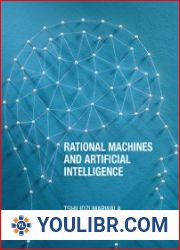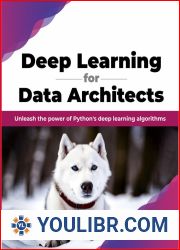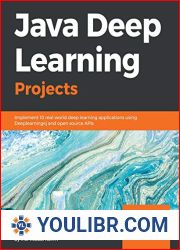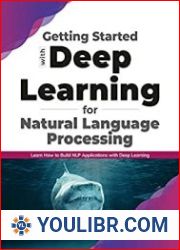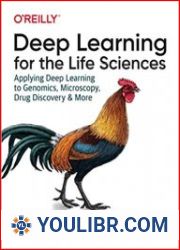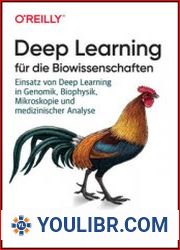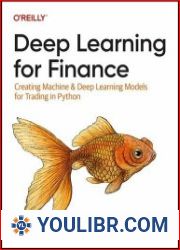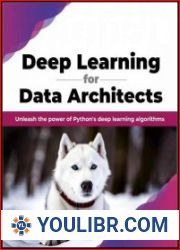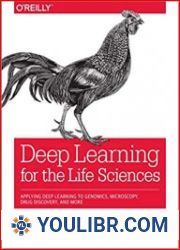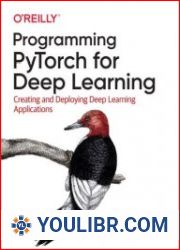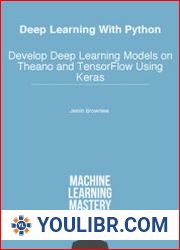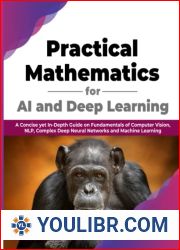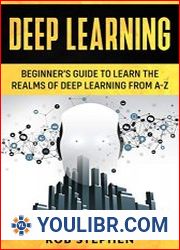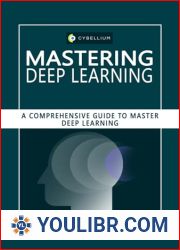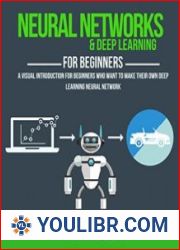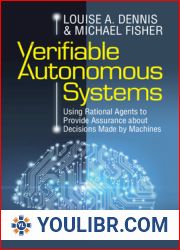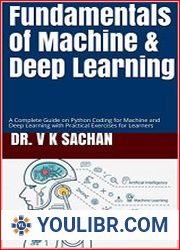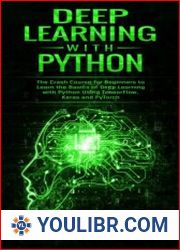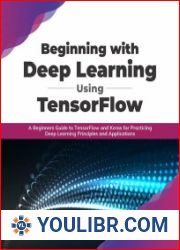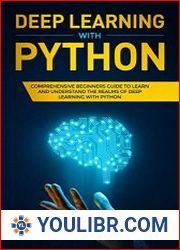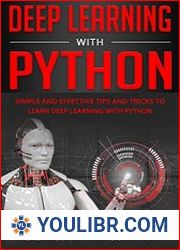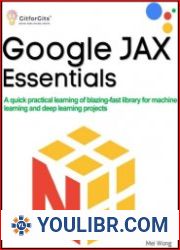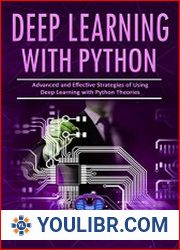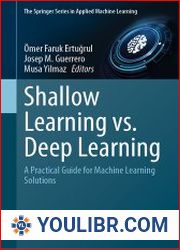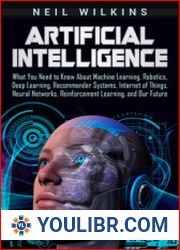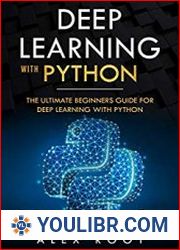
BOOKS - SCIENCE AND STUDY - From Deep Learning to Rational Machines What the History ...

From Deep Learning to Rational Machines What the History of Philosophy Can Teach Us about the Future of Artificial Intelligence
Author: Cameron J. Buckner
Year: 2024
Format: EPUB
File size: 14.1 MB
Language: ENG

Year: 2024
Format: EPUB
File size: 14.1 MB
Language: ENG

Book Description: From Deep Learning to Rational Machines: What the History of Philosophy Can Teach Us About the Future of Artificial Intelligence In this groundbreaking book, we delve into the fascinating intersection of artificial intelligence, philosophy, and the evolution of technology. We explore the potential of deep learning and its ability to achieve artificial intelligence, while examining the classic works of empiricist philosophy and their relevance to the field. By doing so, we gain a deeper understanding of the foundational questions surrounding the use of deep learning and its impact on humanity. Chapter 1: An Overview of Deep Learning and Its Characteristic Strengths and Weaknesses We begin by providing an overview of deep learning, highlighting its key strengths and weaknesses. This chapter sets the stage for our journey through the history of philosophy and its application to the development of artificial intelligence. Chapter 2: Empiricism and the Origins of Abstract Knowledge Here, we dive into the philosophical debate between nativism and empiricism, exploring how these theories have influenced our understanding of abstract knowledge. We examine the work of influential empiricists such as Aristotle, Ibn Sina, Avicenna, John Locke, William James, and Sophie de Grouchy, and discuss how their ideas can be applied to the development of deep learning architectures.
От глубокого обучения к рациональным машинам: чему история философии может научить нас о будущем искусственного интеллекта В этой новаторской книге мы углубляемся в увлекательное пересечение искусственного интеллекта, философии и эволюции технологий. Мы исследуем потенциал глубокого обучения и его способность достигать искусственного интеллекта, одновременно исследуя классические работы эмпирической философии и их актуальность для данной области. Тем самым мы получаем более глубокое понимание основополагающих вопросов, связанных с использованием глубокого обучения и его влиянием на человечество. Глава 1: Обзор глубокого обучения и его характерные сильные и слабые стороны Мы начинаем с обзора глубокого обучения, подчеркивая его ключевые сильные и слабые стороны. Эта глава закладывает основу для нашего путешествия по истории философии и ее приложения к развитию искусственного интеллекта. Глава 2: Эмпиризм и истоки абстрактного знания Здесь мы погружаемся в философские дебаты между нативизмом и эмпиризмом, исследуя, как эти теории повлияли на наше понимание абстрактного знания. Мы исследуем работы влиятельных эмпириков, таких как Аристотель, Ибн Сина, Авиценна, Джон Локк, Уильям Джеймс и Софи де Гручи, и обсуждаем, как их идеи могут быть применены к разработке архитектур глубокого обучения.
De l'apprentissage profond aux machines rationnelles : ce que l'histoire de la philosophie peut nous apprendre sur l'avenir de l'intelligence artificielle Dans ce livre pionnier, nous nous enfonçons dans l'intersection fascinante de l'intelligence artificielle, de la philosophie et de l'évolution des technologies. Nous explorons le potentiel de l'apprentissage profond et sa capacité à atteindre l'intelligence artificielle, tout en explorant les travaux classiques de la philosophie empirique et leur pertinence pour le domaine. Ce faisant, nous avons une meilleure compréhension des questions fondamentales liées à l'utilisation de l'apprentissage profond et de son impact sur l'humanité. Chapitre 1 : Un aperçu de l'apprentissage profond et de ses forces et faiblesses caractéristiques Nous commençons par un aperçu de l'apprentissage profond, soulignant ses principales forces et faiblesses. Ce chapitre pose les bases de notre voyage dans l'histoire de la philosophie et de son application au développement de l'intelligence artificielle. Chapitre 2 : L'empirisme et les origines de la connaissance abstraite Ici, nous plongeons dans un débat philosophique entre nativisme et empirisme, explorant comment ces théories ont influencé notre compréhension de la connaissance abstraite. Nous explorons les travaux d'empiriques influents comme Aristote, Ibn na, Avicenne, John Locke, William James et Sophie de Grucy et discutons de la façon dont leurs idées peuvent être appliquées au développement d'architectures d'apprentissage profond.
Del aprendizaje profundo a las máquinas racionales: lo que la historia de la filosofía nos puede enseñar sobre el futuro de la inteligencia artificial En este libro pionero, profundizamos en la fascinante intersección de la inteligencia artificial, la filosofía y la evolución de la tecnología. Exploramos el potencial del aprendizaje profundo y su capacidad para alcanzar la inteligencia artificial, mientras exploramos las obras clásicas de la filosofía empírica y su relevancia para un campo dado. Al hacerlo, adquirimos una mayor comprensión de las cuestiones fundamentales relacionadas con el uso del aprendizaje profundo y su impacto en la humanidad. Capítulo 1: Revisión del aprendizaje profundo y sus fortalezas y debilidades características Comenzamos con una revisión del aprendizaje profundo, destacando sus fortalezas y debilidades clave. Este capítulo sienta las bases de nuestro viaje por la historia de la filosofía y su aplicación al desarrollo de la inteligencia artificial. Capítulo 2: Empirismo y orígenes del conocimiento abstracto Aquí nos sumergimos en el debate filosófico entre nativismo y empirismo, investigando cómo estas teorías influyeron en nuestra comprensión del conocimiento abstracto. Exploramos el trabajo de empiristas influyentes como Aristóteles, Ibn Cena, Avicenna, John Locke, William James y Sophie de Gruchi, y discutimos cómo sus ideas pueden ser aplicadas al desarrollo de arquitecturas de aprendizaje profundo.
Do aprendizado profundo para as máquinas racionais: o que a história da filosofia pode nos ensinar sobre o futuro da inteligência artificial Neste livro inovador, estamos a aprofundar-nos em uma interligação fascinante entre inteligência artificial, filosofia e evolução da tecnologia. Exploramos o potencial do aprendizado profundo e sua capacidade de alcançar a inteligência artificial ao mesmo tempo em que exploramos os trabalhos clássicos da filosofia empírica e sua relevância para esta área. Assim, temos uma compreensão mais profunda das questões fundamentais que envolvem o uso da aprendizagem profunda e seus efeitos sobre a humanidade. Capítulo 1: A revisão do aprendizado profundo e seus pontos fortes e fracos característicos Começamos com uma revisão do aprendizado profundo, enfatizando seus pontos fortes e fracos. Este capítulo estabelece as bases para a nossa viagem na história da filosofia e sua aplicação para o desenvolvimento da inteligência artificial. Capítulo 2: O empirismo e as origens do conhecimento abstrato Aqui mergulhamos no debate filosófico entre o nativismo e o empirismo, explorando como essas teorias influenciaram a nossa compreensão do conhecimento abstrato. Pesquisamos trabalhos de poderosos empíricos, como Aristóteles, Ibn na, Avicena, John Locke, William James e Sophie de Gruchi, e discutimos como as suas ideias podem ser aplicadas ao desenvolvimento de arquiteturas de aprendizagem profunda.
Dall'apprendimento profondo alle macchine razionali, cosa che la storia della filosofia può insegnarci sul futuro dell'intelligenza artificiale In questo libro innovativo stiamo approfondendo l'affascinante intersezione tra intelligenza artificiale, filosofia e evoluzione tecnologica. Stiamo esplorando il potenziale dell'apprendimento profondo e la sua capacità di raggiungere l'intelligenza artificiale, esplorando al tempo stesso i classici lavori di filosofia empirica e la loro rilevanza in questo campo. In questo modo otteniamo una maggiore comprensione delle questioni fondamentali legate all'uso dell'apprendimento profondo e al suo impatto sull'umanità. Capitolo 1: Una panoramica dell'apprendimento profondo e i suoi punti di forza e debolezza caratteristici Iniziamo con una panoramica dell'apprendimento profondo, sottolineando i suoi punti di forza e debolezza chiave. Questo capitolo pone le basi per il nostro viaggio nella storia della filosofia e la sua applicazione allo sviluppo dell'intelligenza artificiale. Capitolo 2: L'empirismo e le origini della conoscenza astratta Qui ci immergiamo nel dibattito filosofico tra nativismo ed empirismo, esplorando come queste teorie abbiano influenzato la nostra comprensione della conoscenza astratta. Stiamo esplorando i lavori di importanti esperimenti come Aristotele, Ibn Xina, Avicena, John Locke, William James e Sophie de Grucchi, e discutendo di come le loro idee possano essere applicate allo sviluppo di architetture di formazione profonda.
Vom Deep arning zu rationalen Maschinen: Was uns die Geschichte der Philosophie über die Zukunft der Künstlichen Intelligenz lehren kann In diesem wegweisenden Buch tauchen wir ein in die faszinierende Schnittstelle von Künstlicher Intelligenz, Philosophie und Technologieentwicklung. Wir untersuchen das Potenzial von Deep arning und seine Fähigkeit, künstliche Intelligenz zu erreichen, während wir die klassischen Arbeiten der empirischen Philosophie und ihre Relevanz für das Feld untersuchen. Dadurch gewinnen wir ein tieferes Verständnis der grundlegenden Fragen, die mit dem Einsatz von Deep arning und seinen Auswirkungen auf die Menschheit verbunden sind. Kapitel 1: Überblick über Deep arning und seine charakteristischen Stärken und Schwächen Wir beginnen mit einem Überblick über Deep arning, der die wichtigsten Stärken und Schwächen hervorhebt. Dieses Kapitel legt den Grundstein für unsere Reise durch die Geschichte der Philosophie und ihre Anwendung auf die Entwicklung der künstlichen Intelligenz. Kapitel 2: Empirismus und die Ursprünge des abstrakten Wissens Hier tauchen wir in die philosophische Debatte zwischen Nativismus und Empirismus ein und untersuchen, wie diese Theorien unser Verständnis von abstraktem Wissen beeinflusst haben. Wir untersuchen die Arbeit einflussreicher Empiriker wie Aristoteles, Ibn na, Avicenna, John Locke, William James und Sophie de Gruchi und diskutieren, wie ihre Ideen auf die Entwicklung von Deep-arning-Architekturen angewendet werden können.
Od głębokiego uczenia się po racjonalne maszyny: Co historia filozofii może nas nauczyć o przyszłości sztucznej inteligencji W tej przełomowej książce zagłębiamy się w fascynujące skrzyżowanie sztucznej inteligencji, filozofii i ewolucji technologii. Badamy potencjał głębokiego uczenia się i jego zdolność do osiągnięcia sztucznej inteligencji, badając klasyczne dzieła filozofii empirycznej i ich znaczenie dla tej dziedziny. Dzięki temu zyskujemy głębsze zrozumienie podstawowych kwestii związanych z wykorzystaniem głębokiego uczenia się i jego wpływu na ludzkość. Rozdział 1: Przegląd głębokiego uczenia się i jego charakterystycznych mocnych i słabych stron Zaczynamy od przeglądu głębokiego uczenia się, podkreślając jego kluczowe mocne i słabe strony. Rozdział ten stanowi fundament naszej podróży przez historię filozofii i jej zastosowania do rozwoju sztucznej inteligencji. Rozdział 2: Empiryzm i początki wiedzy abstrakcyjnej Tutaj wkraczamy w filozoficzną debatę między natywizmem a empiryzmem, badając, jak te teorie wpłynęły na nasze zrozumienie wiedzy abstrakcyjnej. Badamy pracę wpływowych empiryków, takich jak Arystoteles, Ibn na, Avicenna, John Locke, William James i Sophie de Gruchy, i dyskutujemy, jak ich pomysły mogą być stosowane do rozwoju architektury głębokiego uczenia się.
מלמידה עמוקה למכונות רציונליות: מה שההיסטוריה של הפילוסופיה יכולה ללמד אותנו על עתיד הבינה המלאכותית בספר פורץ דרך זה, אנו מתעמקים בצומת המרתק של בינה מלאכותית, פילוסופיה, ואבולוציה של הטכנולוגיה. אנו חוקרים את הפוטנציאל של למידה עמוקה ואת יכולתה להשיג בינה מלאכותית תוך כדי חקר היצירות הקלאסיות של פילוסופיה אמפירית בעשותנו כן, אנו רוכשים הבנה עמוקה יותר של הנושאים הבסיסיים סביב השימוש בלמידה עמוקה והשפעתה על האנושות. פרק 1: סקירה של למידה מעמיקה ושל החוזקות והחולשות האופייניות לה אנו מתחילים בסקירה מקיפה של למידה מעמיקה, הפרק הזה מניח את היסודות למסע שלנו בהיסטוריה של הפילוסופיה ויישומו לפיתוח בינה מלאכותית. פרק 2: אמפיריציזם ומקורות הידע המופשט כאן אנו צוללים לתוך הוויכוח הפילוסופי בין נאטיביזם לאמפיריציזם, אנו בוחנים את עבודתם של אמפיריציסטים רבי השפעה כמו אריסטו, אבן סינא, אביסנה, ג 'ון לוק, ויליאם ג'יימס וסופי דה גרוצ 'י, ודנים כיצד ניתן ליישם את רעיונותיהם לפיתוח אדריכלי למידה עמוקה.''
Derin Öğrenmeden Rasyonel Makinelere: Felsefe Tarihi Bize Yapay Zekanın Geleceği Hakkında Ne Öğretebilir? Bu çığır açan kitapta, yapay zeka, felsefe ve teknolojinin evriminin büyüleyici kesişimini inceliyoruz. Derin öğrenmenin potansiyelini ve yapay zekaya ulaşma yeteneğini keşfederken, ampirik felsefenin klasik eserlerini ve bunların alanla ilgisini keşfediyoruz. Bunu yaparken, derin öğrenmenin kullanımını ve insanlık üzerindeki etkisini çevreleyen temel konular hakkında daha derin bir anlayış kazanırız. Bölüm 1: Derin öğrenmenin ve karakteristik güçlü ve zayıf yönlerine genel bakış Derin öğrenmenin genel bir bakışıyla başlıyoruz, temel güçlü ve zayıf yönlerini vurguluyoruz. Bu bölüm, felsefe tarihi ve yapay zekanın gelişimine uygulanması konusundaki yolculuğumuzun temelini oluşturmaktadır. Bölüm 2: Ampirizm ve Soyut Bilginin Kökenleri Burada, nativizm ve ampirizm arasındaki felsefi tartışmaya dalıyoruz ve bu teorilerin soyut bilgi anlayışımızı nasıl etkilediğini araştırıyoruz. Aristoteles, İbn na, Avicenna, John Locke, William James ve Sophie de Gruchy gibi etkili ampiristlerin çalışmalarını inceliyoruz ve fikirlerinin derin öğrenme mimarilerinin gelişimine nasıl uygulanabileceğini tartışıyoruz.
من التعلم العميق إلى الآلات العقلانية: ما الذي يمكن أن يعلمنا إياه تاريخ الفلسفة عن مستقبل الذكاء الاصطناعي في هذا الكتاب الرائد، نتعمق في التقاطع الرائع للذكاء الاصطناعي والفلسفة وتطور التكنولوجيا. نستكشف إمكانات التعلم العميق وقدرته على تحقيق الذكاء الاصطناعي مع استكشاف الأعمال الكلاسيكية للفلسفة التجريبية وصلتها بالمجال. وبذلك نكتسب فهما أعمق للقضايا الأساسية المحيطة باستخدام التعلم العميق وتأثيره على البشرية. الفصل 1: نظرة عامة على التعلم العميق ونقاط قوته وضعفه المميزة نبدأ باستعراض عام للتعلم العميق، مع تسليط الضوء على نقاط قوته وضعفه الرئيسية. يضع هذا الفصل الأساس لرحلتنا عبر تاريخ الفلسفة وتطبيقها على تطوير الذكاء الاصطناعي. الفصل 2: التجريبية وأصول المعرفة المجردة هنا نغوص في الجدل الفلسفي بين النزعة الأصلية والتجريبية، واستكشاف كيف أثرت هذه النظريات على فهمنا للمعرفة المجردة. ندرس عمل التجريبيين المؤثرين مثل أرسطو وابن سينا وابن سينا وجون لوك وويليام جيمس وصوفي دي جروشي، ونناقش كيف يمكن تطبيق أفكارهم على تطوير بنى التعلم العميق.
딥 러닝에서 합리적인 기계에 이르기까지: 철학의 역사가 인공 지능의 미래에 대해 우리에게 가르 칠 수있는 것 우리는 경험적 철학의 고전 작품과 현장과의 관련성을 탐구하면서 딥 러닝의 잠재력과 인공 지능을 달성하는 능력을 탐구합니다. 그렇게함으로써 우리는 딥 러닝의 사용과 인류에 미치는 영향과 관련된 근본적인 문제에 대해 더 깊이 이해하게됩니다. 1 장: 딥 러닝과 그 특징적인 강점과 약점에 대한 개요는 딥 러닝에 대한 개요로 시작하여 주요 강점과 약점을 강조합니다. 이 장은 철학의 역사와 인공 지능 개발에 적용되는 여정을위한 토대를 마련합니다. 2 장: 경험주의와 추상 지식의 기원 여기에서 우리는 낙관주의와 경험주의 사이의 철학적 논쟁에 뛰어 들어 이러한 이론이 추상 지식에 대한 우리의 이해에 어떤 영향을 미쳤는지 탐구합니다. 우리는 Aristotle, Ibn na, Avicenna, John Locke, William James 및 Sophie de Gruchy와 같은 영향력있는 경험가들의 작업을 조사하고 그들의 아이디어가 딥 러닝 아키텍처의 개발에 어떻게 적용될 수 있는지 논의합니다.
Deep arningからRational Machinesへ哲学の歴史が教えてくれる人工知能の未来この画期的な本では、人工知能、哲学、テクノロジーの進化の魅力的な交差点を掘り下げます。私たちは、深層学習の可能性と人工知能を達成する能力を探求しながら、経験哲学の古典的な作品とその分野への関連性を探求します。その中で、ディープラーニングの活用をめぐる問題とその人類への影響について、より深く理解しています。第1章:ディープラーニングの概要とその特徴的な強みと弱みディープラーニングの概要から始めます。この章では、哲学の歴史と人工知能の開発への応用を通して私たちの旅の基礎を築きます。第2章:経験主義と抽象的知識の起源ここでは、これらの理論が抽象的知識の理解にどのような影響を与えてきたかを探りながら、自然主義と実証主義の間の哲学的論争に挑みます。私たちはアリストテレス、イブン・シナ、アヴィチェンナ、ジョン・ロック、ウィリアム・ジェームズ、ソフィー・ド・グルーシーなどの影響力のある経験主義者の仕事を調べ、彼らのアイデアが深層学習アーキテクチャの開発にどのように応用できるかについて議論します。
從深度學習到理性機器:哲學史可以告訴我們人工智能的未來。在這本開創性的書中,我們將深入研究人工智能,哲學和技術發展的迷人交匯處。我們探索深度學習的潛力及其實現人工智能的能力,同時探索經驗哲學的經典著作及其與給定領域的相關性。這樣,我們就能更好地了解深入學習的使用及其對人類的影響的根本問題。第1章:深度學習概述及其特有的優缺點我們首先回顧深度學習,強調其關鍵優缺點。本章為我們在哲學史上的旅程及其對人工智能發展的應用奠定了基礎。第二章:經驗主義和抽象知識的起源在這裏,我們深入研究了本土主義和經驗主義之間的哲學辯論,探討了這些理論如何影響我們對抽象知識的理解。我們研究了亞裏斯多德,伊本·辛,阿維森納,約翰洛克,威廉詹姆斯和蘇菲德格魯奇等有影響力的經驗主義者的作品,並討論了他們的思想如何應用於深度學習建築的發展。







